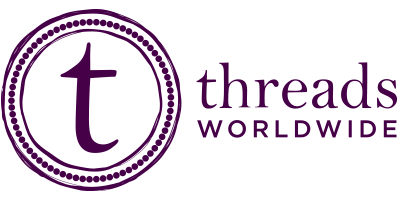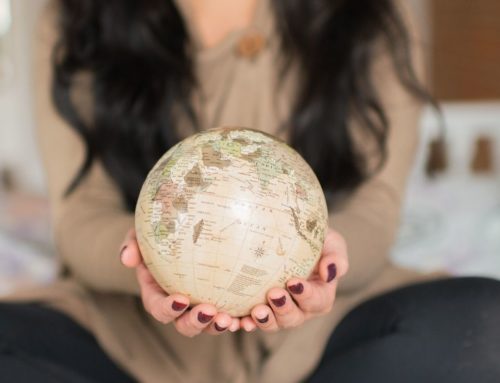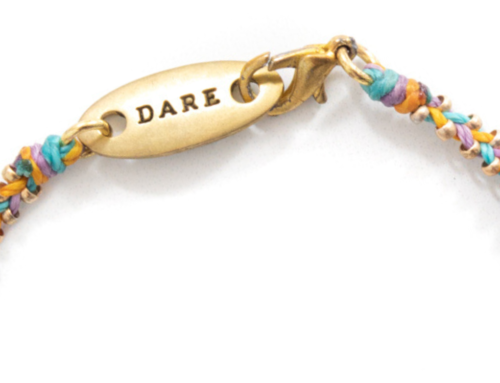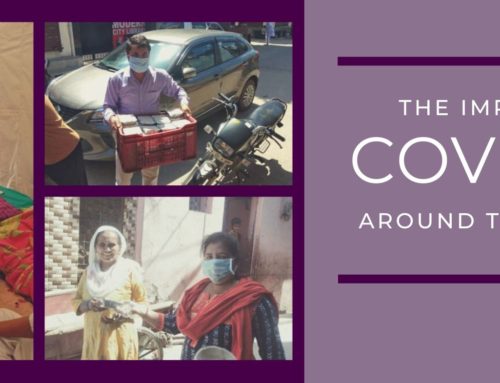In 2013, two of Threads’ three Founders, Angela and Lindsay, packed their bags and journeyed from Denver, Colorado to Ecuador to visit some of our Artisan Partners.
Angela and Lindsay visited the home the artisans had built with their earnings, entering their workshop on the second floor. Inside, large picture windows spilled sunlight into the room, revealing mountains in the distance. Vibrant beads of all shapes and sizes decorated the shelves, jewelry design templates were pinned to the walls, and artisans were hard at work making beautiful necklaces, bracelets, and earrings.
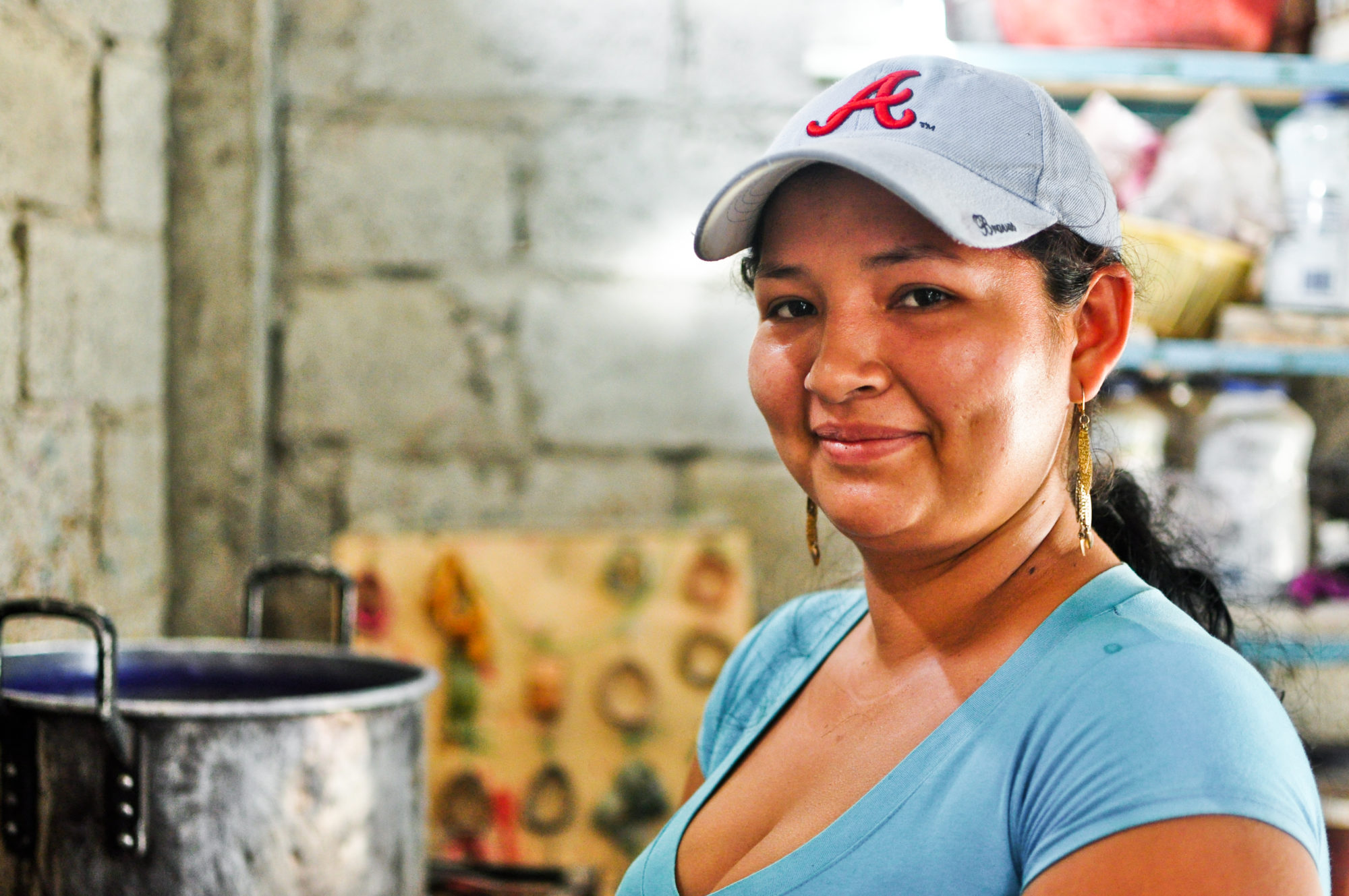
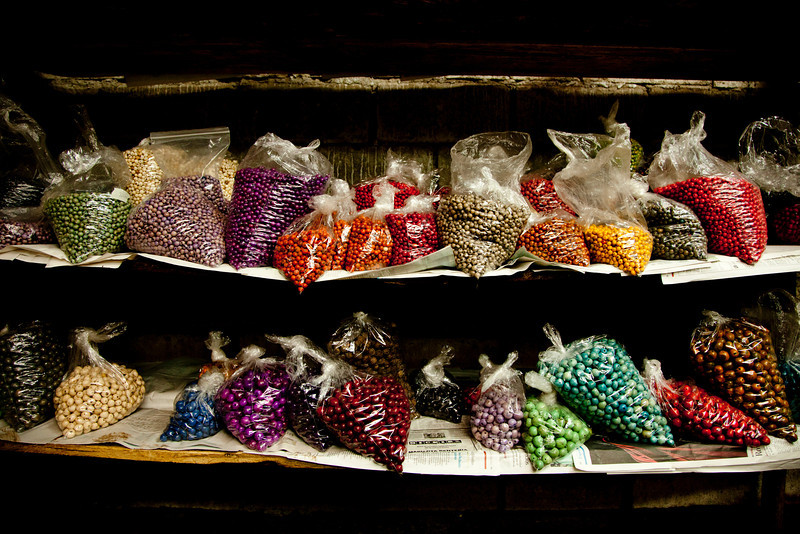
In this workshop, the women craft several pieces out of tagua seeds, known as “vegetable ivory” for it’s resemblance to the elephant tusks’ color and durability. The use of tagua is a source of great pride for the Ecuadorian artisans. They are thrilled to utilize a resource that harms no animal (unlike real ivory), and instead makes use of a plentiful resource found in their country’s natural environment.
Tagua seeds are harvested from a specific species of palm tree, where many are collected from a single fruit armored with a hard, spiked exterior. Most of the seeds are slightly smaller than an egg, and covered in a thin brown shell.
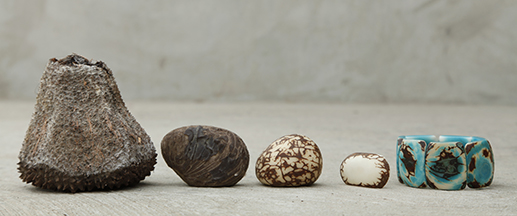
The process of turning tagua seeds into gorgeous jewelry like our beloved Ibarra Necklace is intricate. After the seeds are harvested, they are dried in the sun, then polished, dyed, and cut, all by hand. Depending on the piece, this process takes from 5 to 8 weeks. Because the seeds hold any color they are dyed, our tagua jewelry ranges from bright statement necklaces to subtle and delicate earrings. The finished product can slightly resemble the tagua seed, as in the Fresia bracelet, or they can maintain the mystery of their source, like the Heron Necklace.
The artisans also made jewelry out of pambil seeds, coconut shells, and acai seeds, all of which are sustainable and ethical resources. One of our favorite characteristics of plant-based jewelry is that it doesn’t absorb heat, making it perfect for a poolside summer afternoon. The pieces are lightweight and effortless, transcending seasons with their versatility. Have you ever seen custom stud diamond earrings and how they match with every outfit? Wear several together to add a splash of color to a minimalist’s wardrobe, or showcase each separately to emphasize their unique character and don’t forget that you also have the option of doing a gold exchange, this way you exchange those jewelry pieces that you don’t wear anymore.
The process of turning tagua seeds into gorgeous jewelry like our beloved Ibarra Necklace is intricate. After the seeds are harvested, they are dried in the sun, then polished, dyed, and cut, all by hand. Depending on the piece, this process takes from 5 to 8 weeks. Because the seeds hold any color they are dyed, our tagua jewelry ranges from bright statement necklaces to subtle and delicate earrings. The finished product can slightly resemble the tagua seed, as in the Fresia bracelet, or they can maintain the mystery of their source, like the Heron Necklace.
The artisans also made jewelry out of pambil seeds, coconut shells, and acai seeds, all of which are sustainable and ethical resources. One of our favorite characteristics of plant-based jewelry is that it doesn’t absorb heat, making it perfect for a poolside summer afternoon. The pieces are lightweight and effortless, transcending seasons with their versatility. Wear several together to add a splash of color to a minimalist’s wardrobe, or showcase each separately to emphasize their unique character.
If you’d like to get more unique jewelry options, then make sure to visit https://store.museumofjewelry.com/collections/14k-gold/earrings/. They have great jewelry pieces!
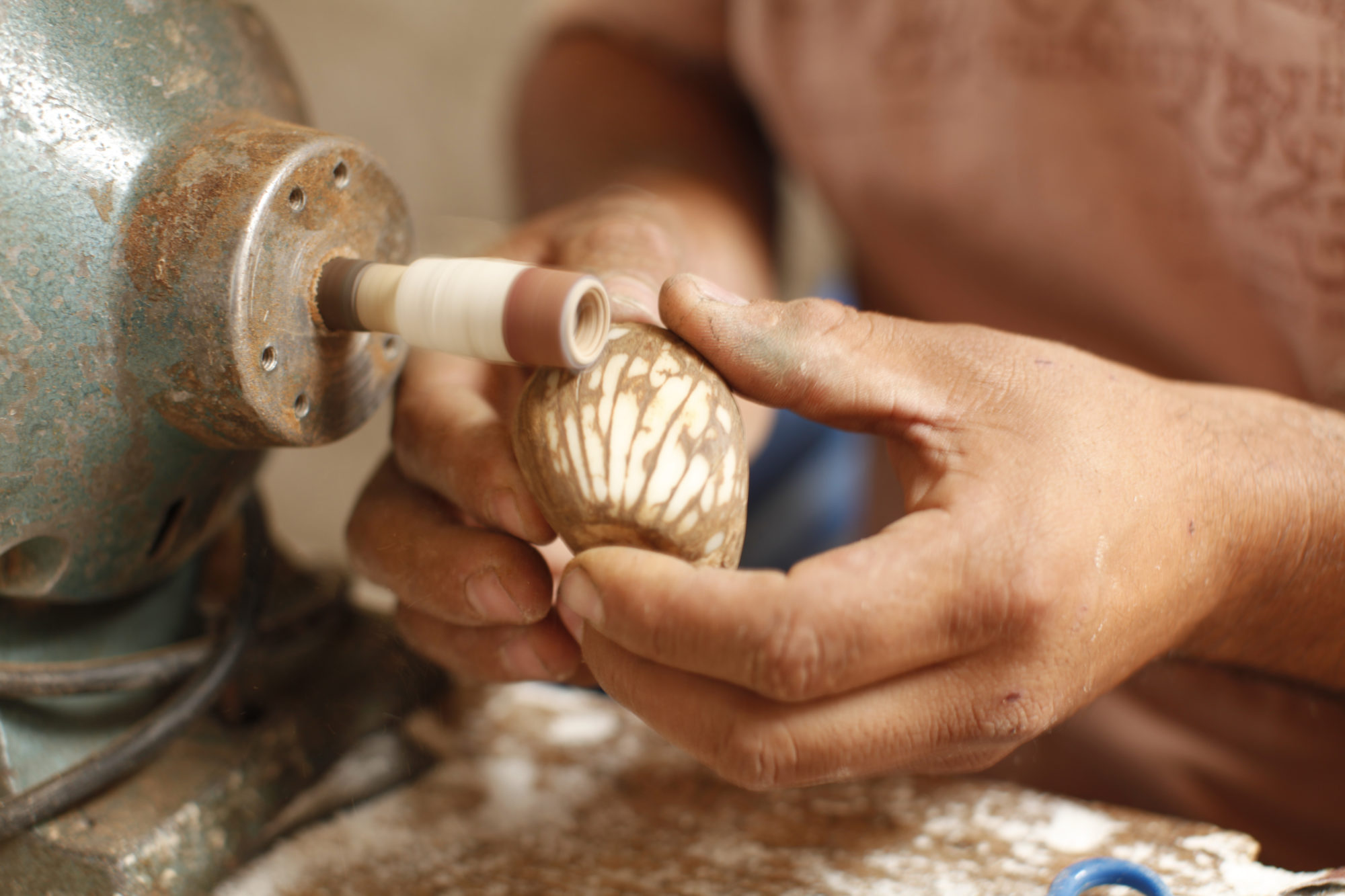
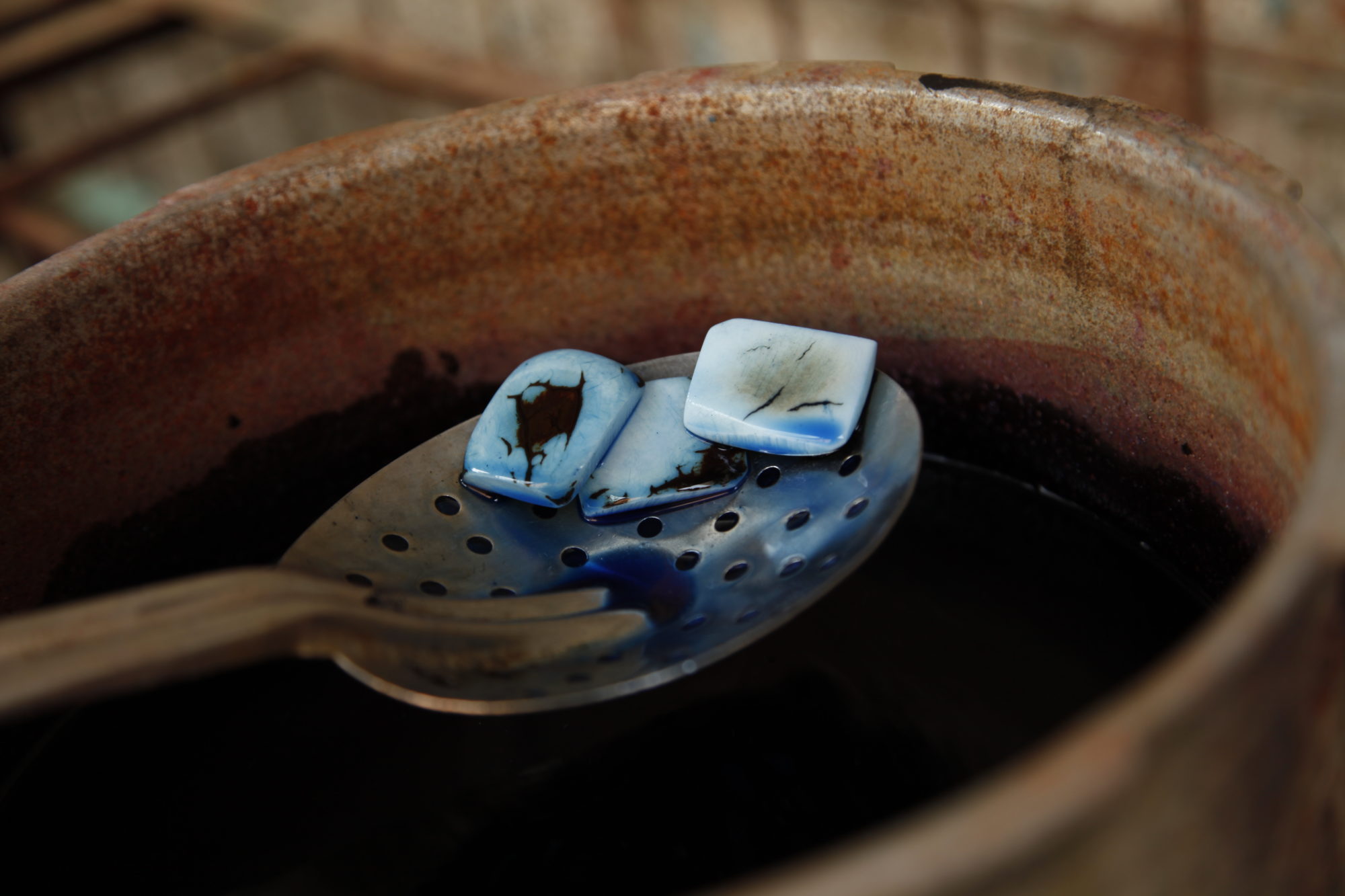
We’ve just announced that Threads founders and select Fair Trade Partners will travel to Ecuador next summer to reconnect with the artisan community. Fair Trade Partners will secure their spot on the trip by expanding their business, hitting landmarks such as making exceptional sales numbers and adding new team members.
As a growing startup, Threads Worldwide is always seeking new Fair Trade Partners to expand our community and further our mission. Fair Trade Partners run their own small business, doing everything from organizing Showcases to growing their own team of Fair Trade Partners, all on their own schedule. The opportunities for upward mobility and increased earnings are nearly endless. Threads makes it a priority to open the minds of Fair Trade Partners with cultural education and immersion — such as our trip to Ecuador in 2017!
Working as a Fair Trade Partner means working for yourself and expanding your world view along the way. Help us change the world, one woman at a time.
